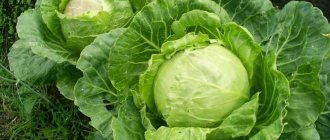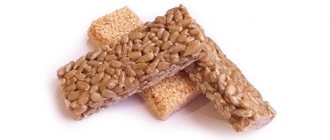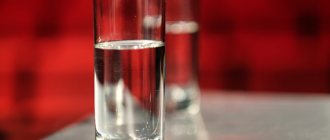Completion of lactation is a difficult and responsible period. Every mother worries about how this process will affect the child’s health and her condition. To avoid serious emotional and physical consequences, it is necessary to gradually wean the baby from the breast.
Many doctors advise using medicinal herbs to complete lactation, but to make weaning “soft” and painless, follow some rules. How to stop breastfeeding? What herbs to use and in what dosage? More on this later.
When can you stop feeding?
The decision to stop breastfeeding is a very serious one and requires a mandatory weighing of all possible pros and cons of lactation. Sometimes certain circumstances, such as a mother going to work, force her to stop breastfeeding. But the best option is when you have enough time to understand whether your baby is ready for such changes. In this case, you can choose the ideal time to make cessation of lactation easy and comfortable.
First you need to understand whether the baby is ready for such drastic changes in his life. There is a widespread belief among mothers that the optimal age to stop breastfeeding is after one year. And the WHO even speaks out in favor of waiting up to 2 years. In any case, if the baby is not yet ripe for weaning, he will definitely not like this idea. Here are some signs that now is not the best time to stop breastfeeding:
- the child demonstrates in every possible way that he does not like it when he is not given breastfeeding;
- in your family, breastfeeding before and after bedtime is mandatory, otherwise the process of falling asleep will be problematic;
- at night feedings continue at intervals of several hours;
- if you are already mastering complementary feeding, the baby requires breastfeeding after every meal;
- if you leave for several hours, then after returning the baby first asks for the breast;
- in moments of worry or stress, mother’s milk remains the best consolation for your little one;
- the baby's age is less than two years old and also speaks in favor of continuing breastfeeding.
Readiness No. 1
But the following signs will help you understand that the time has come to reduce lactation:
- you do not feel excess milk in your breasts;
- The baby is already 2 years old;
- Breastfeeding now occurs only during moments of intense distress for the baby or before bedtime;
- During the day he has no time for his chest - he is busy with his own affairs.
If the listed signs are just about your baby or there are circumstances that force you to stop lactation, then it’s time. It is in your power to make this process gradual and comfortable.
For those who are for naturalness - simple rules
The stress and anxiety of stopping breastfeeding can be minimized if you follow a few rules:
- the key to success is a confident and positive attitude that everything will work out;
- the frequency of feedings should be reduced gradually;
- Replace some breastfeeding with a meal with juice or water from a bottle;
- Surely your baby only asks for breastfeeding at home, then why not go for walks and go out more often;
- change feeding habits;
- Almost always you cannot do without reducing lactation, which is what medicinal herbs will help you with.
These tips will help make your weaning process painless and comfortable.
Negative consequences of abrupt cessation of lactation
Abrupt weaning can have negative consequences:
- Stress. The newborn often cries, is capricious, and sleep disorders occur. Mom also becomes irritable, mood swings occur due to another hormonal imbalance.
- Mom's pain. Lactation decreases gradually, and with a sudden cessation of natural feeding, a woman’s breasts hurt and become very swollen. Discomfort is especially noticeable during the first 3–5 days.
- Dangerous diseases. After an abrupt cessation of lactation, the mammary glands swell, become hard, and lumps and compactions are felt on palpation. This condition indicates an inflammatory process and the beginning of the development of lactostasis (blockage of the duct), as well as mastitis.
Now you know how to stop feeding so as not to harm yourself and your baby. After deciding to stop lactation, visit a doctor who will select the herbs that are most suitable for you. Strictly observe the dosage, follow the recommendations of breastfeeding specialists. Remember, only “soft” weaning is the safest.
Subscribe to our VKontakte group
A variety of herbs to stop breastfeeding
In folk medicine, there are remedies that stop lactation, which have been successfully tested by many mothers. Their effect is mainly diuretic, and this ensures that the body gets rid of excess fluid and reduces the amount of milk. If you wanted to reduce and then stop breastfeeding and encountered painful sensations in the chest, then in this case, medicinal herbs will help you. After using them, you will no longer be bothered by tingling in your chest and discomfort.
On the Internet you can find information about various herbs to suppress the process of breastfeeding. Blindly following all kinds of advice will be tantamount to signing up for a risk for you and your baby. For example, a common recommendation is to use belladonna to stop the lactation process. This is not the best option for mom, because the plant contains atropine, which promotes nervous excitement. The advice to consume walnut leaves is also popular. And they contain intoxicating substances that make the herbal remedy unsuitable for mothers.
Before using any herb to stop lactation, you should carefully study the information and, ideally, consult your pediatrician.
Choosing the right grass
Then what herbs will gently and without consequences reduce lactation? The following plants do not cause suspicion:
- Sage, a safe plant in every sense, is widely used in medicine. If before this you used this herb only for gargling and for inflammation in the mouth, now you can use sage to stop lactation. It has proven itself to be an excellent way to reduce lactation.
- Mint is another plant that will be safe for both mom and baby. You can object to us by pointing out the calming effect of this herb. Indeed, this is the case, but the relaxing effect of mint is very mild and safe. The effect of mint on the amount of breast milk will be just as gradual and non-aggressive - it will gradually become less, and then it will disappear altogether.
- Bearberry is a plant for stopping breastfeeding, harmless to nursing mothers and their babies, which is easy to find in the pharmacy.
- An herb that grows everywhere, parsley, has also gained wide popularity among wet nurses. In addition to eating and brewing it, you can make parsley compresses on the chest to reduce lactation.
- Less popular, but also effective, are plants and dried berries such as lingonberries, alder, hop cones, and clover.
You can rest assured that these plants are safe—there are no threats to you or your baby when they are consumed.
How to use these assistants in stopping lactation?
Recipe box
We bring to your attention some of the most popular herbal recipes to stop lactation.
- The most famous recipe for stopping breastfeeding is perhaps sage infusion. To prepare it, pour 2-3 tbsp. l. herbs 300 ml. boiling water and leave for 2 hours. The dosage of the medicine is half a glass three times a day. Mothers who use this remedy report that their milk supply decreases significantly already on the 4th day. In addition, you will strengthen the immune system and ensure the healthy functioning of the female reproductive system.
- Substances that reduce lactation have also been found in mint. Mothers also use this plant as an infusion. To prepare it, pour 50 g of dry crushed mint into 300 ml. boiling water and leave for about an hour. After this, strain and consume 100 ml three times a day before meals.
- Diuretic herbs are also very effective in stopping breastfeeding. These include lingonberries, basil, parsley and bearberry. The action of these plants will be aimed at removing excess fluid from the body and thus reducing lactation. It is not at all difficult to prepare an infusion from any of the above herbs: you need to pour 2 tbsp. l. plants 400 ml. boiling water After infusion for 2 hours, the product can be consumed in quantities of up to 6 glasses per day.
Among folk remedies that reduce lactation, compresses made from cabbage leaves are also popular. They need to be rolled out and cooled slightly. Hold the leaves on your chest until they become soft. You can have no doubt about the safety of this method, but the gentleness of the effect increases the time of use.
If you are choosing a remedy to safely stop lactation, then the thought of using herbs should appeal to you because of their gentle effect on the body. Use proven recipes and everything will work out!
Expert opinions and reviews from women
Doctors recommend using special medications to reduce milk production only in extreme cases and do not prohibit herbal remedies.
If, after a woman has stopped breastfeeding, milk continues to be produced, hot flashes are intense, discomfort occurs in the mammary gland or the temperature rises, when lactation does not stop for 3-4 days, you need to take special medications that stop milk production. They are quite effective, but only a doctor should recommend and prescribe them. These medications act through the central nervous system, and their uncontrolled use without the advice of a doctor can lead to serious complications.
Viktor Davydenko - gynecologist of the highest category at the Meditsina clinic
https://www.parents.ru/article/7-voprosov-ob-otluchenii-rebenka-ot-grudi/
Folk remedies for reducing lactation include all types of diuretic herbs (lingonberry, basil, horsetail, parsley, etc.). Particularly noteworthy are mint and sage. If you brew sage infusions and drink them regularly, lactation will decrease after just a few days of use.
Maria Nazarova, leading breastfeeding consultant
https://detstrana.ru/consultation/spetsialist-po-gv/prekraschenie-laktatsii/
Young mothers also prefer herbal remedies, considering them safer.
To help my milk flow out, I started drinking mint and sage. I simply brewed two filter packets of peppermint and sage and drank two glasses a day. And the milk went away on its own. On the second day, milk stopped coming from this “tea”. And after another 2 days it burned out completely. Many of my friends had problems with completing breastfeeding, but here is such a simple, cheap and most importantly natural and absolutely harmless method. I recommend it to all young mothers!
Vikki_333
https://irecommend.ru/content/myata-spasla-kogda-syn-otkazalsya-ot-grudi-chitat-vse-kto-kormit-grudyu
To reduce the amount of milk produced, I chose the traditional method - an infusion of medicinal sage. I bought 2 packs, and as soon as I was in the mood, in the evening, I brewed myself the first portion... And... Let's go... I only drank sage for 5 days, just while it was actively filling. A couple of times I had to express lightly, once I had to apply Vishnevsky’s ointment to the places of the seals. Some kind of “terrible horror” that I was expecting did not happen. The breasts could be “weared”))), and they did fit into the bra, again thanks to sage) I only had pain in the armpits for a couple or three days. And it was difficult to sleep those first few days.
STAR IN THE SKY
https://irecommend.ru/content/shalfei-lekarstvennyi-narodnye-sposoby-ostanovki-laktatsii-kak-otnyat-dvukhgodovalogo-rebenk
To stop lactation, drink less fluid. Tea with mint (1 cup a day) helped me a lot - then less milk will come in. if the breasts are still “full”, express carefully (trying not to touch the areola), do not allow hardening.
vendredi
https://www.mamaclub.in.ua/forum/108–12480–2
Now I can say for sure that camphor oil helps stop lactation. Fold gauze in several layers, soak it in oil and wrap it around the breast so as not to affect the nipple. On top there is a bag and a T-shirt. So that everything would hold. I did it 4 nights in a row, and the milk just went away, but then stopped and started again. So I think it needs to be completed to the end. Although now I still pump not once a day, but once every two days. I think that this is progress
meri
https://www.mamaclub.in.ua/forum/108–12480–3
I covered my chest with cabbage leaves, slept with them, brewed mint, a lot of mint and drank it. Lactation passed in 5 days. Still not a single discharge (2 months have passed)
Xenophobia
https://www.woman.ru/kids/baby/thread/4106148/











